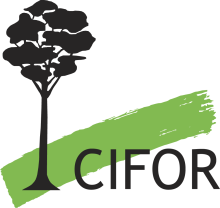Resource information
Women’s participation in decision making at the user-group level and in forest committees has been demonstrated to have a positive impact on forest sustainability. For example, women’s participation enhances forest regeneration and reduces illegal harvesting through improved monitoring. Their presence in forest user groups increases the groups’ capacity to manage and resolve conflicts, which in turn increases the likelihood that resource users will comply with and respect harvesting and use rules. These insights have been especially useful in informing policy and project interventions designed to strengthen and amplify women’s participation. The research presented in this brief advances our knowledge of how women may influence forest management. It explores the different effects on forest management by groups with different male–female composition (i.e. female-dominated, mixed-gender and male-dominated user groups). The study investigates each type of group’s property rights to forest resources, harvesting preferences, participation in rule making, relative investments in forest management and the outcomes of these activities. The research, conducted in four countries in Latin America and East Africa, adopts a comparative approach, which is intended to identify synergies within regions and to create a learning environment that may lead to improved forest management.



